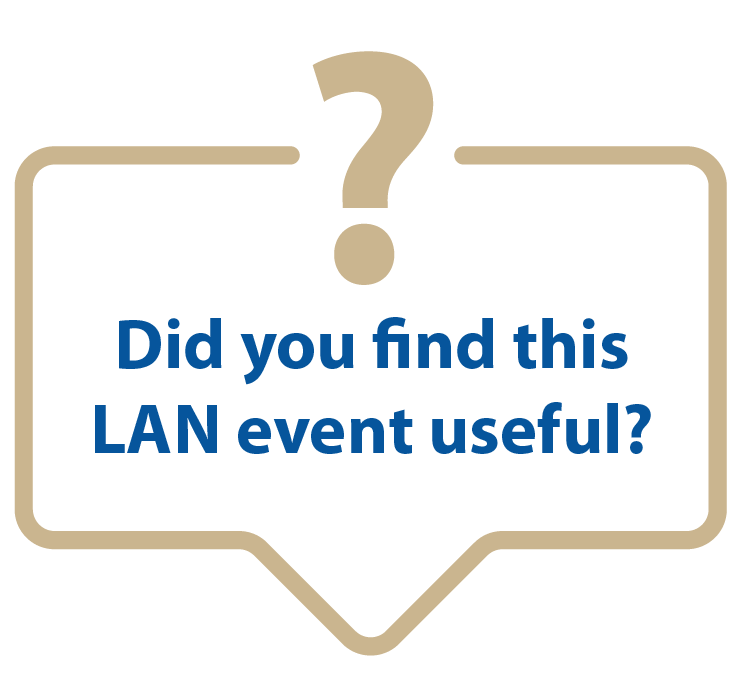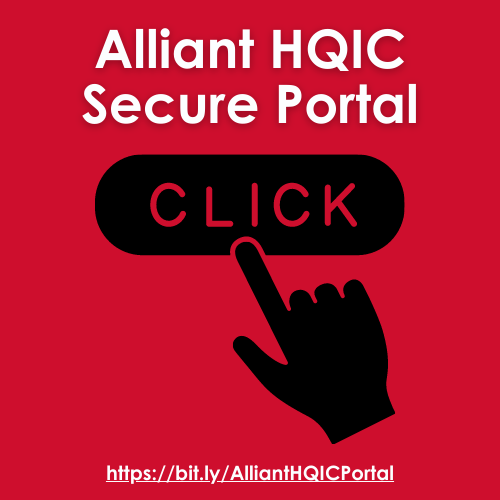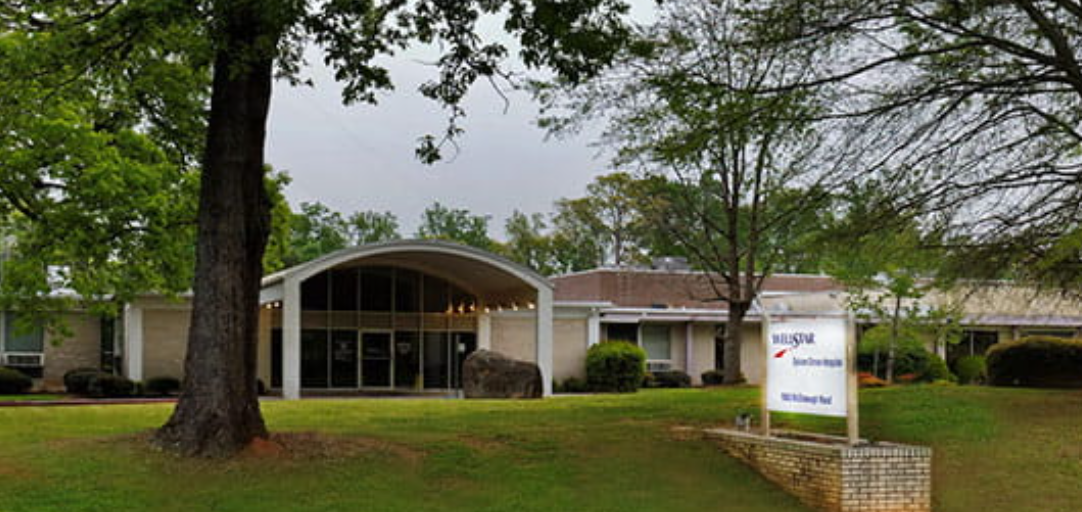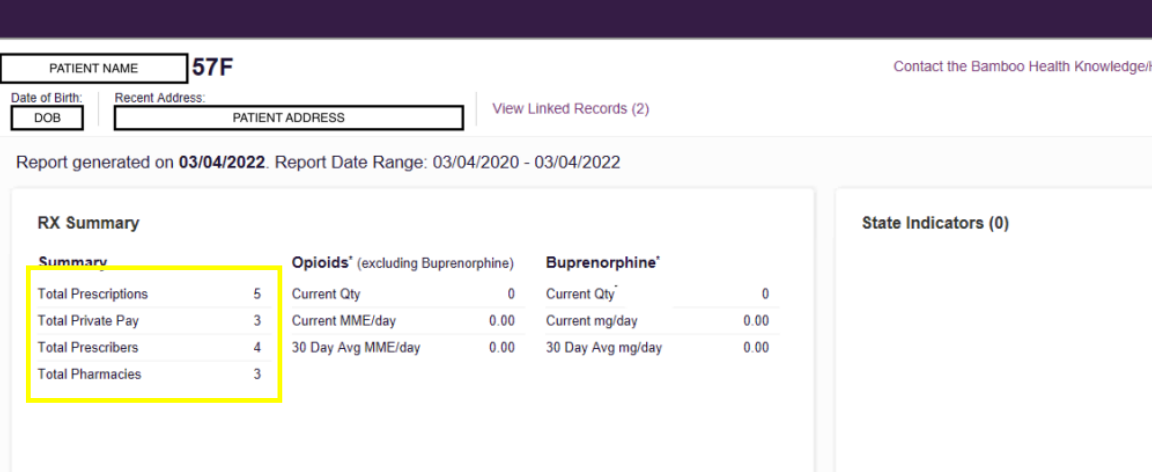|
|
|
|
This monthly newsletter highlights the latest insights, resources, and evidence-based best practices.
Our hope is that this newsletter makes it easy for you to stay on top of trends and allows you to provide the best possible care for those you work with and serve.
|
|
|

FY 2022 Results for Two Value-Based Purchasing Programs
CMS recently updated the Provider Data Catalog to include fiscal year 2022 results for the Hospital-Acquired Condition Reduction Program and the Hospital Readmissions Reduction Program. Hospital datasets for both programs may be accessed by selecting the “Hospitals” topic and then using keyword searches for the programs. More information can be found here.
|
Upcoming Learning and Action Network (LAN) Events
WALK with the WOC and Step into a Brighter Future of Pressure Injury Prevention
Tuesday, April 26, 2022, at 2 p.m. ET | 1 p.m. CT (30 min.)
Join this exciting presentation to learn how one hospital’s leadership support helped transform the role of the Wound, Ostomy and Continence (WOC) nurse to own patient outcomes related to skin care and reduce hospital-acquired pressure injuries (HAPI).
Learning Objectives:
- Gain insight into the rationale and how to support the WOC nurse to lead the nurses to decrease hospital-acquired pressure injuries (HAPI).
- Demonstrate an improvement process to reduce hospital-acquired pressure injuries, one step at a time.
- Illustrate a patient story and highlight how teach-back methodology helped a family.
Register Here | View Agenda
Infection Prevention: Words of WISDOM (What I Should Do on Monday)
Tuesday, May 24, 2022, at 2 p.m. ET (30 min.)
Target Audience: New infection preventionists
Alliant HQIC is looking for experienced infection preventionists to share their pearls of wisdom about infection prevention and NHSN for staff new to the IP role and IPs starting their career. If you would like to share, please email Karen Holtz at Karen.holtz@allianthealth.org. Ideas and examples will be provided.
Register Here
Past Learning and Action Network (LAN) Events
Exploring Strategies to Prevent Opioid Morbidity and Mortality – Hosted by Compass HQIC
Recorded on March 8
This presentation provided practical approaches to prevent opioid morbidity and mortality in your health care system. Strategies discussed included reducing morphine milligram equivalents prescribed at hospital discharge, screening for patients at the highest risk of developing an opioid-related adverse drug event or opioid use disorder, implementing a take-home naloxone program, and buprenorphine induction and transition to outpatient treatment.
View Slides, Recording and Change Pathway
View All Upcoming Events Here

If Yes, Click Below.
Click here if you attended the November LAN event and were able to "use tomorrow" what you heard during the webinar.
View All Previous LAN Event Recordings
Community of Practice (CoP) Calls
CMS hosts CoP calls on the second Thursday of each month at 1 p.m. ET | 12 p.m. CT | 11 a.m. MT | 10 am. PT. The calls are open to all Alliant HQIC hospitals.
Reducing the Health Disparities Gap: A Practical Framework for Promoting Health Equity in Your Hospital
Thursday, April 14
Alliant Health Solutions and TMF are pleased to have two representatives from the American Hospital Association, Priya Bathija, vice president of strategic initiatives, and Julia Resnick, director of strategic initiatives, present during this call. They will share tactics on how to drill down into data and a community partnering framework to address social needs and social determents of health while also sharing tools and resources, including a health equity roadmap. In addition, Ward Memorial Chief Executive Officer Leticia Rodriquez and Clinical Informatics And Pharmacy Manager Brandy Wolf will also share success stories around addressing COVID-19 and health equity from the perspective of a rural critical access hospital.
Register Here
CLABSI Control and Reduction Efforts During the COVID-19 Pandemic
Thursday, May 12
Join Health Services Advisory Group and the HQIC community as we summarize the impact of COVID-19 on CLABSI, discuss lessons learned, and review the importance of CLABSI best practices with facility-specific examples of how to control device utilization, bundle compliance and associated infections.
Register Here
HQIC Quality Improvement Series
Alliant Health Solutions hosts a three-part series focused on quality improvement models and tools, process improvement, and developing a quality improvement team and helpful resources. View Agenda
These 30-minute sessions will be held on the dates below from 1 p.m. ET |12 p.m. CT.
Register for all the upcoming sessions today to reserve your space.
Session 1: Thursday, Feb. 3, 2022 – View Slides | View Recording
Session 2: Thursday, March 3, 2022 – View Slides | View Recording
Session 3: Thursday, April 7, 2022 – Register Here
COVID Office Hours-IP Chat
Alliant Health Solutions hosts this chat on the 2nd and 4th Wednesday of every month from 2-2:30 p.m. ET.
Alliant is aware that infection preventionists (IPs) are under pressure to ensure the organizations they serve are aware and responding to ever-changing requirements. In our rural and critical access hospitals, many IPs have limited time to stay up-to-date on the information needed to implement effective control measures and sort through new information as science evolves. In these chats, IPs discuss their challenges and solutions. For more information, visit the Alliant website. preventionists (IPs) are under pressure to ensure the organizations they serve are aware and responding to ever-changing requirements. In our rural and critical access hospitals, many IPs have limited time to stay up-to-date on the information needed to implement effective control measures and sort through new information as science evolves. In these chats, IPs discuss their challenges and solutions. For more information, visit the Alliant website.
No registration is required.
Join by phone: 646-992-2010 Access code: 2337 284 8005
WebEx link: COVID Office Hours-IP Chats
|
 Alliant HQIC Online Portal Alliant HQIC Online Portal
Access the Alliant HQIC portal to view your assessments and measurement data, and chat with other HQIC-enrolled hospitals to share best practices, barriers and solutions. Download Portal Instructions to Get Started
Behavioral Health/Opioid Stewardship
Counties with High Rates of Opioid-Related Medical Care
To better understand how and where to target interventions for the opioid crisis, policymakers need to assess the impact of social determinants of health at the community level. In 2016, counties with high rates of opioid-related hospitalizations and emergency department visits had the following social determinants of health characteristics: higher percentages of economically disadvantaged residents and Medicaid recipients; higher crime rates; and more densely populated and racially segregated. Read More
Patient Safety
Free Trainings Available Through the CDC Learning Connection
The CDC Learning Connection helps public health and health care professionals stay informed about quality trainings from CDC, other federal agencies and federally funded partners. Each month, free trainings are featured on the CDC Learning Connection website. The site also has continuing education (CE) courses. Visit the Site
Why We Should Focus on Systems
Systems drive organizational outcomes. Poorly designed equipment and medical devices, uncoordinated care processes, and fragmented systems lead to error. Too often, systems are designed in a way that does not account for how people interact with their work environment. Systems are the environment in which organizational processes are performed and are the combination and relationship among:
- Tasks and processes
- The people involved
- Organizational culture
- Environmental factors
- Tools and technology
- Equipment and resources available
Safety is about your system
How do you know about failures in your organization’s design/policy/process? Walk around and ask. Choose a process, then ask five random staff members that perform the work these questions:
- How do they do it?
- What do they do it with?
- When do they do it?
- Who do they do it with?
- Where do they do it?
The answers will confirm processes are in place and working as intended or will provide an opportunity to work with staff on improvement. Read more at:
Making Health Care Safe: The Story of the Patient Safety Movement
This unique and engaging open access book provides a compelling and ground-breaking account of the patient safety movement in the United States, told from the perspective of one of its most prominent leaders, Lucian L. Leape, MD. Get the Book
Adverse Drug Events
A Review of Medication-Related Interventions To Improve Medication Safety and Patient Outcomes on Transition From Adult Intensive Care Settings
Patients transferring from the intensive care unit (ICU) to the hospital ward may experience medication errors. A systematic review published by BMJ Journals examined medication-related interventions on the impact of medication errors in ICU patients transferring to the hospital ward. Seventeen studies were included with five identified intervention components. Read the Review
Performance of a Trigger Tool for Detecting Drug-Related Hospital Admissions in Older People
Adverse drug events (ADEs) are an important cause of hospitalizations in older adults. Based on data from the OPERAM trial, a study published by Oxford Academic explored the accuracy of triggers for identifying medication-related hospital admissions in older adults. Triggers were related to diagnoses (e.g., falls, bleeding, thromboembolic events), laboratory values (e.g., hypo- or hyperglycemia) and other factors (e.g., mention of an ADE in the patient record, abrupt medication discontinuation). Among 1,235 included hospitalizations, 58% cases had at least one trigger; medication-related admissions were adjudicated in 72% of these cases. Ready the Study
Antibiotic Stewardship
Antibiotic Stewardship: Twenty Years in the Making
In the last 20 years, efforts were made to optimize antibiotic use in hospitals across the world as a means of addressing the increasing threat of antibiotic resistance. Despite robust evidence supporting optimal practice, antibiotic decision-making remains sub-optimal in many settings, including in hospitals. Globally, resources remain a limiting factor in the implementation of antibiotic stewardship programs. Learn More
Washington Hospitals Highlight Antibiotic Stewardship for CDC
Several Washington hospitals recently participated in a CDC safe health care webinar, sharing their strategies for enhancing antimicrobial stewardship programs in critical access hospitals. Topics included reimaging rural health through state and community partnerships, education, prescribing and reporting strategies and prescribing guidelines and data tracking to inform outpatient stewardship. Click Here and skip to 30:15 to view the presentations.
Health Care-Associated Infection
AHRQ Safety Program for MRSA Prevention
Methicillin-resistant Staphylococcus aureus (MRSA) is one of the most invasive and deadly multidrug-resistant organisms. In 2019, the CDC reported that more than 2.8 million antibiotic-resistant infections occur in the United States each year, and more than 35,000 people die as a result. In addition, preliminary analyses have found increases in hospital-onset resistant infections like MRSA during the COVID-19 pandemic. The Agency for Healthcare Research and Quality (AHRQ) will recruit intensive care units (ICUs) and non-ICUs from hospitals with 100+ beds to join a free 18-month program beginning in April 2022 and seeks to reduce and prevent MRSA infections.
Toolkit for Decolonization of Non-ICU Patients With Devices
The AHRQ’s new Toolkit for Decolonization of Non-ICU Patients with Devices can help clinical teams implement a protocol to reduce bloodstream infections in patients with specific medical devices. The free, customizable toolkit includes step-by-step instructions, handouts and educational videos to show frontline teams how to apply a decolonization protocol for non-ICU patients who may be at greater risk of bloodstream infections because they have certain devices, such as central venous catheters. The decolonization protocol includes instructions on helping patients bathe with an antiseptic soap and applying a nasal antibiotic ointment to carriers of Methicillin-resistant Staphylococcus aureus (MRSA). Get the Toolkit
NHSN
NHSN New IP Checklist
To help manage your National Healthcare Safety Network (NHSN) Patient Safety Component (PSC) training progress, NHSN created a checklist and divided it into the PSC’s different modules. For each NHSN PSC topic, access the specified training guide and review the related materials. All the materials are available on the NHSN website unless otherwise noted. Download the NHSN PSC Checklist
Pressure Injuries
COVID-19 Resources for Pressure Injury Prevention
The National Pressure Injury Advisory Panel (NPIAP) is an independent nonprofit professional organization dedicated to the prevention and management of pressure injuries. Click Here to read their paper "Unavoidable Pressure Injury during COVID-19 Pandemic: A Position Paper from the NPAIP."
NPIAP Tip Sheet for Pressure Injury Prevention
The NPIAP created a helpful tip sheet for prone positioning to prevent pressure injuries. Download Tip Sheet
Pressure Injury-Related Articles
Patient and Family Engagement
Restarting and Energizing PFACs–Easy to Implement How-To-Lists
The Consumers for Advancing Patient Safety (CAPS) is an organization that envisions a partnership between consumers and providers to create global health care systems that are safe, compassionate and just. See How-To-Lists on the Alliant Website.
Watch the Diversity and Inclusion on PFACs Webinar on the CAPS YouTube Channel
Guide to Patient and Family Engagement in Hospital Quality and Safety
Research shows that when patients are engaged in their health care, it can lead to measurable improvements in safety and quality. To promote stronger engagement, the AHRQ developed the Guide to Patient and Family Engagement in Hospital Quality and Safety, an evidence-based resource to help hospitals work as partners with patients and families to improve quality and safety. Read Strategy 1: Working with Patients and Families as Advisors
Health Equity
CMS Hosting Rural Health Quality Webinar
The CMS is inviting the public to attend the upcoming webinar: Rural Health Quality: How CMS Initiatives Improve How We Measure and Address Gaps in Care. This presentation will highlight the unique challenges surrounding quality measurement in rural settings, and how CMS is working to address these issues to ensure equitable care is provided to all Americans regardless of where they reside. CMS will host this presentation twice. Register for the session that works best for you.
For questions on how measurement can support rural health quality that you would like addressed during the presentation, contact MMSSupport@battelle.org.
American Hospital Association Launches Health Equity Roadmap
The Health Equity Roadmap, which builds on the goals established by the National Call to Action to Eliminate Health Care Disparities and AHA’s #123forEquity Pledge, is designed to meet hospitals and health systems where they are on their equity journey. It includes customized resources and action plans, among other support tools, to guide organizations throughout the transformation process. To learn more, visit AHA’s Health Equity Roadmap webpage and watch the short video. Starting your Health Equity journey? Check out Roadmap for Success: Implementing Equitable Care (HSAG HQIC, 2021).
Recording of HHS Anniversary Event Now Available
The recent Department of Health and Human Services (HHS) Region IV - ACA Then & Now anniversary event featured various speakers and engaged with 215 participants. The information shared was invaluable and inspiring. Click Here for the Meeting Recording (Note: there are two videos. Click the forward button to view the second full video)
Readmissions/Care Transitions
Most COVID-19 Hospitalizations Due to Four Conditions
Studies show that certain common medical conditions put people at higher risk for severe illness from COVID-19. These include metabolic disorders like type 2 diabetes and obesity, as well as heart conditions like high blood pressure (hypertension) and heart failure. People with these four conditions are more likely to be hospitalized with COVID-19. Read More
|
COVID-19 Care
Resources for Managing Psychological Distress During COVID-19
COVID-19 continues to cause emotional distress for many as we move toward a new normal, only to encounter yet another wave of illness. Listen to Dr. Ann Shillingford’s presentation on managing psychological distress during COVID-19. Alliant Health Solutions is a strategic partner with the Morehouse School of Medicine's National COVID Resiliency Network. Learn More
COVID Impact on Patient Safety
The CDC’s Division of Healthcare Quality and Promotion has several programs and activities focused on improving the quality of health care and protecting patients. CDC expertise, data and programs are critical for patient safety actions and health care worker safety.
CDC data suggest that during the COVID-19 pandemic, health care safety declined.
The CDC’s Project Firstline addresses this issue by providing health care workers with infection control education and training to keep their patients and themselves safe. Project Firstline recently launched a new suite of materials to help health care workers think critically about infection risks and take action to protect themselves and their patients. Read More
COVID-19 Vaccine Resources
Alliant Health Solutions COVID-19 Vaccine Resources
Curated resources and best practices to support long-term care facilities, clinics, providers, and staff as they navigate vaccine distribution. Alliant Health Solutions COVID-19 Vaccine Resources
NCRN COVID-19 Resources Alliant Health Solutions is a strategic partner in the Morehouse School of Medicine National COVID-19 Resiliency Network (NCRN) in mitigating the effects of COVID-19. For information on the NCRN or local, state and national resources, see the resources flyer. English | Spanish
|
Hospital Heroes
Patient Safety and Quality Award Winner Spotlight: Habersham Medical Center
 Congratulations to Habersham Medical Center in Demorest, Ga., on winning first place in the Hospitals With Less Than 100 Beds category for its project, Engaging the Patient Improves Patient Experience and Enhances Patient Safety, which led to improved patient care. The Georgia Hospital Association applauds Habersham Medical Center for working to enhance patient safety and ensure the best and safest care possible for its patients. Congratulations to Habersham Medical Center in Demorest, Ga., on winning first place in the Hospitals With Less Than 100 Beds category for its project, Engaging the Patient Improves Patient Experience and Enhances Patient Safety, which led to improved patient care. The Georgia Hospital Association applauds Habersham Medical Center for working to enhance patient safety and ensure the best and safest care possible for its patients.
Pictured Left to Right: Back row: Zoe Jenkins, Lab; Tinnelle Davey, ED; Rachel Lewallen, Quality; Samantha Ramey, OB; Valeria Lewis, DON. Front row: Beth Hester, ED; Kristina Adamson, Education; Karen Phillips, Acute Care Services, Priscilla Adams, Quality
|
Success Stories
Georgia Hospital Shares How It Improved Opioid ADE Outcomes
Wellstar Sylvan Grove Hospital, a 25-bed critical access hospital located in Jackson, Ga., shared its journey to improve outcomes with opioid adverse drug events on a recent Patient Safety Network webinar. Erica Fishell, MSN, RN, director of clinical operations, discussed the following interventions, which have made a positive impact: 25-bed critical access hospital located in Jackson, Ga., shared its journey to improve outcomes with opioid adverse drug events on a recent Patient Safety Network webinar. Erica Fishell, MSN, RN, director of clinical operations, discussed the following interventions, which have made a positive impact:
- Integration of Prescription Drug Monitoring Programs (PDMP) into Epic
- The physician or nurse can easily click query the PDMP to see a snapshot of where the patient has had a controlled substance like a prescribed opioid, what the opioid is, the quantity filled and where it was filled.
- Common practice with patients with non-acute and chronic complaints.
- Checked anytime a provider decides to prescribe an opioid.
- FYI notes
- FYIs are tagged on patients' charts within the Wellstar system, and there are private notes on the chart that can alert a provider of a potential opioid abuse.
- The notes will alert of seeking behavior or patterns of behavior that are concerning for opioid abuse and will recommend using a non-narcotic means of treating their pain.
PDMP Example:


Other helpful strategies include:
- Not carrying Dilaudid in the emergency department
- Recommending follow-up with a chronic pain physician
- Recommending utilization of non-narcotic medications for chronic pain: lidoerm patches, Diclofenac topical ointments, IM or IV Toradol
- Promoting healthier lifestyles with exercise and stretching
- Utilizing the in-patient swing bed unit for rehabilitation for patients with chronic debilitation and chronic pain conditions
Resources shared during the webinar:
View the Presentation on the Alliant Website
Alabama Hospital Finds Success Using the Hospital Portal To Analyze ADE Anticoagulant Data
Russell Medical Center is an 81-bed hospital located in Alexander City, Ala., and is one of six Five Star hospitals in Alabama recognized by CMS. During a recent Quality Leader Summit, Brenda Duncan, RN, Director of Quality Management and Jerry Holley, RPh, Director of Pharmacy, shared the hospital’s success using the hospital portal to analyze their ADE anticoagulant data. hospital located in Alexander City, Ala., and is one of six Five Star hospitals in Alabama recognized by CMS. During a recent Quality Leader Summit, Brenda Duncan, RN, Director of Quality Management and Jerry Holley, RPh, Director of Pharmacy, shared the hospital’s success using the hospital portal to analyze their ADE anticoagulant data.
During a coaching call with the Alabama Hospital Association and an Alliant pharmacist, an increase in ADE anti-coagulants was reviewed. Opportunities for improvement were the ability to identify ADEs and gain access to resources for best practice interventions. Ongoing goals include recognition of ADEs, identifying of cases and identifying of the causes of increased ADEs.
Pharmacy-led interventions included:
- Dosing protocols
- Clinical data support
- Dosage adjustments for renal and liver function
Both Brenda and Jerry said they benefited from their engagement with Alliant HQIC and recommend “know your numbers.” Other helpful hints included:
- Access the HQIC portal. Ask your performance improvement adviser for assistance.
- Review the ICD-10 captured data
- Top five ICD-10 codes for claims: D649, D62, R791, K922, K921
- These claims capture 80% of ADE
|
|
|
Connect with us!
    Click here if you'd like to share your corporate profiles with us and we'll connect with you!
Click here if you'd like to share your corporate profiles with us and we'll connect with you!
|
| |
Hospital Quality Improvement Project Collaborators


|
| |
|
Copyright © 2022, All rights reserved.
Our mailing address is:
Alliant Health Solutions
1455 Lincoln Pkwy
Suite 800
Atlanta, GA 30346
|
For more information about Alliant Health Solutions, visit the website: www.allianthealth.org
For questions or information about free technical assistance, please contact:
Share this email with a friend or colleague:  
|
|
|
|
|